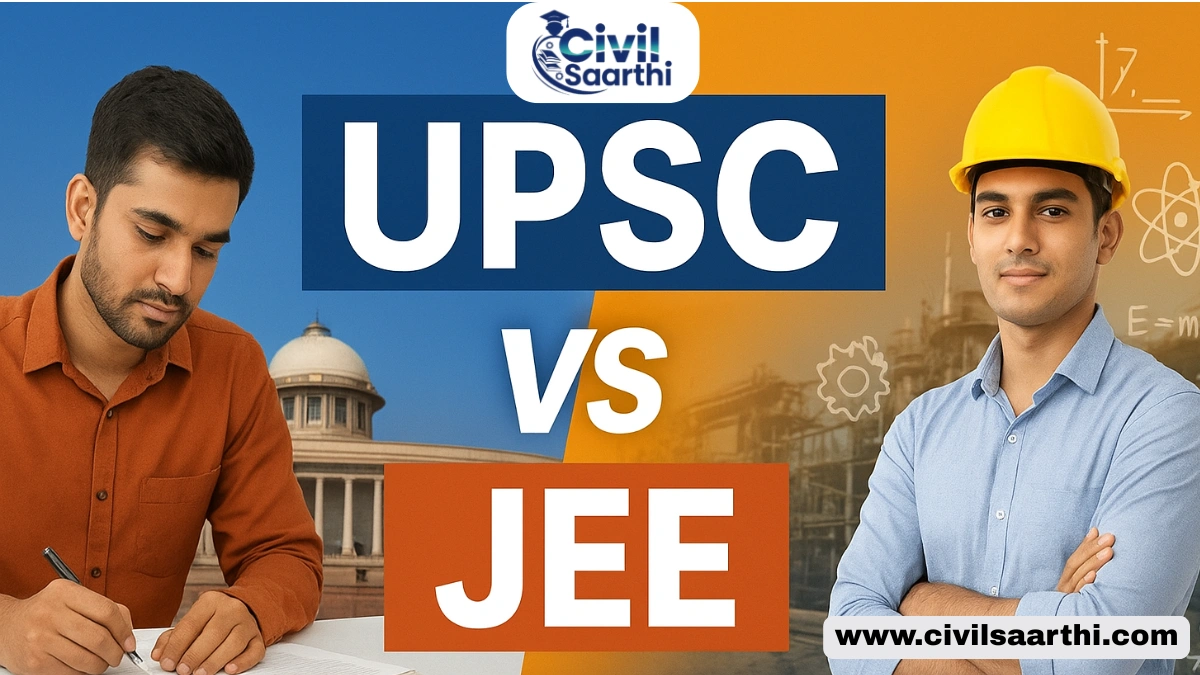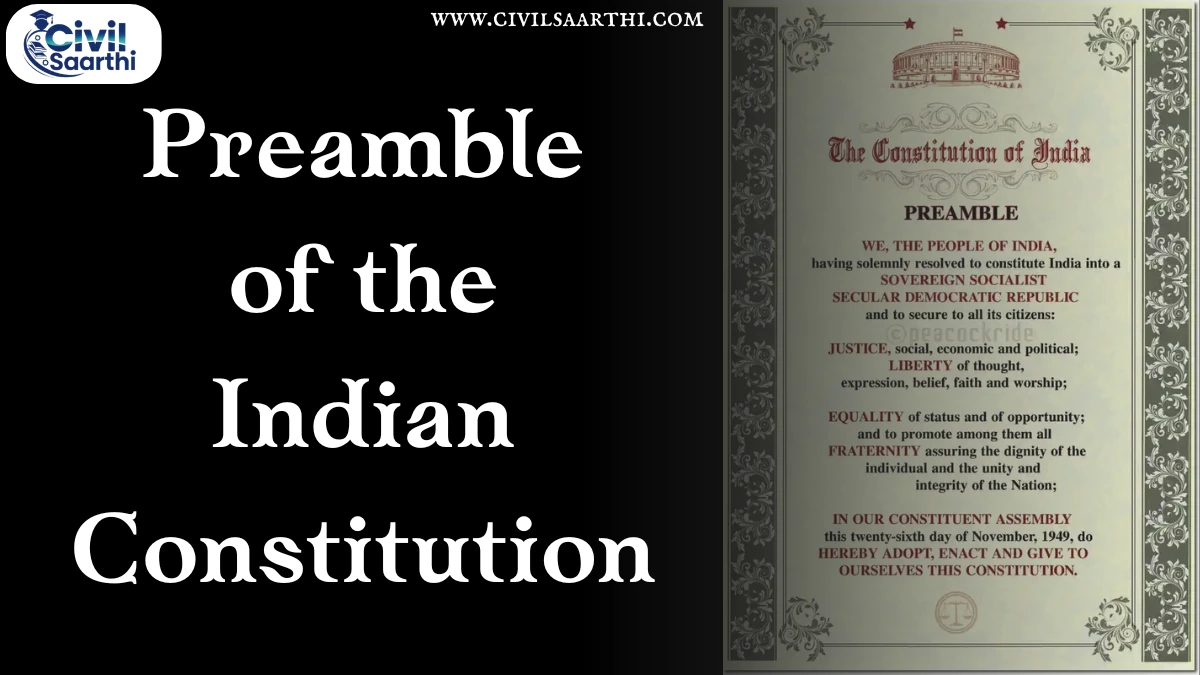Every year, lakhs of students across India prepare for two of the most competitive exams – UPSC Civil Services Examination (CSE) and JEE Advanced. Both exams demand hard work, patience, and smart strategies, but they differ in purpose, pattern, and difficulty. While JEE Advanced opens the door to IITs and a career in engineering, UPSC CSE leads to India’s most prestigious administrative services. This article compares the two exams in detail to answer the question – Which is tougher, UPSC or JEE Advanced?
Overview of UPSC CSE
The Union Public Service Commission (UPSC) conducts the Civil Services Examination annually to recruit officers for IAS, IPS, IFS, and other services. It is known as one of the toughest exams in the world because of its vast syllabus, three-stage process (Prelims, Mains, Interview), and unpredictability of questions. Success requires strong analytical ability, current affairs knowledge, and writing skills.
Overview of JEE Advanced
JEE Advanced is the gateway to the prestigious IITs and is conducted by one of the IITs every year. Only the top candidates from JEE Main are eligible to attempt this exam. It tests conceptual clarity, problem-solving ability, and time management skills in Physics, Chemistry, and Mathematics. The competition is fierce since only a small percentage of aspirants make it to the IITs.
Exam Pattern Comparison: UPSC vs JEE
UPSC CSE:
Prelims (objective)
Mains (9 descriptive papers)
Personality Test (Interview)
JEE Advanced:
Two papers, both objective-based
Questions focus on advanced PCM concepts
Strong emphasis on speed and accuracy
While UPSC tests general awareness, essay writing, and decision-making, JEE Advanced checks logical reasoning and application of formulas under time pressure.
Syllabus Comparison: UPSC vs JEE
UPSC Syllabus: Vast and unpredictable, covering History, Geography, Polity, Economy, Environment, Science & Tech, Current Affairs, and Essay writing.
JEE Advanced Syllabus: Focused and well-defined – Physics, Chemistry, and Mathematics of Class 11 & 12 at an advanced level.
Thus, UPSC requires breadth of knowledge, while JEE Advanced demands depth in specific subjects.
Also Read: UPSC Prelims Syllabus 2026
Also Read: UPSC Mains Syllabus 2026
Number of Attempts and Eligibility: UPSC vs JEE
UPSC CSE: Candidates can attempt 6 times (General category) with an age limit of 32 years.
JEE Advanced: Candidates can attempt only 2 times within 2 consecutive years after Class 12.
Also Read: UPSC Number of Attempts
This means UPSC gives more opportunities to try, while JEE Advanced has a narrow eligibility window.
Level of Competition: UPSC vs JEE
UPSC: Around 10–12 lakh applicants every year, with only 800–1000 selections. Success rate is less than 0.2%.
JEE Advanced: Around 2.5 lakh students qualify JEE Main to appear for JEE Advanced, but only 15,000–16,000 seats are available in IITs.
Both exams have a very low success rate, but UPSC aspirants face higher uncertainty due to changing question patterns.
Skills Required: UPSC vs JEE
UPSC:
Strong memory retention
Writing and analytical skills
Decision-making ability
Patience and consistency
JEE Advanced:
Conceptual clarity in PCM
Fast problem-solving
Accuracy under pressure
Logical reasoning
The nature of skills differs, but both require long-term dedication.
Psychological Pressure: UPSC vs JEE
UPSC preparation usually spans 2–3 years and requires following newspapers, government reports, and multiple books. The uncertainty of questions adds mental pressure.
JEE Advanced, on the other hand, demands intense 2–3 years of study starting from school, where students balance board exams and competitive coaching. The early age at which aspirants face JEE Advanced adds to the stress.
Which is Tougher? UPSC or JEE Advanced?
UPSC is tougher in terms of syllabus vastness, unpredictability, and longer preparation time.
JEE Advanced is tougher in terms of problem-solving speed, conceptual clarity, and limited attempts.
Ultimately, toughness is subjective. For students inclined towards analytical sciences, JEE Advanced may feel more natural, while for those interested in governance, policy, and diverse subjects, UPSC can be more challenging.
UPSC vs JEE Advanced: Comparison Table
| Feature | UPSC CSE | JEE Advanced |
|---|---|---|
| Purpose | Recruitment for IAS, IPS, IFS, etc. | Admission to IITs |
| Syllabus | Vast (Humanities, Science, Current Affairs) | Limited (PCM concepts) |
| Exam Stages | Prelims, Mains, Interview | Two objective papers |
| Attempts | 6 (General category) | 2 attempts |
| Age Limit | Up to 32 years | Within 2 years of Class 12 |
| Selection Ratio | <0.2% | ~5–7% |
| Preparation Time | 2–3 years | 2–3 years |
| Key Skills | Writing, analysis, decision-making | Problem-solving, speed, accuracy |
Conclusion
Both UPSC CSE and JEE Advanced are among the toughest exams in India, but they test completely different skill sets. UPSC demands patience, vast knowledge, and consistent writing practice, whereas JEE Advanced requires sharp conceptual clarity and speed in problem-solving. Neither exam is “easy” – the choice depends on your career goals, interests, and strengths.
UPSC vs JEE Advanced FAQs
Q1. Which exam is tougher, UPSC or JEE Advanced?
UPSC is tougher in terms of syllabus and unpredictability, while JEE Advanced is tougher in terms of conceptual depth and speed.
Q2. Can an IITian crack UPSC?
Yes, many IIT graduates clear UPSC every year. Analytical ability from JEE prep helps, but UPSC requires additional focus on current affairs and writing skills.
Q3. How many attempts are allowed in UPSC and JEE Advanced?
UPSC gives 6 attempts (for General category), while JEE Advanced allows only 2 attempts within 2 years of Class 12.
Q4. Is UPSC harder than IIT entrance?
UPSC is harder because of its vast syllabus and low success ratio. However, IIT entrance is harder for younger students due to intense competition and limited attempts.
Q5. Which exam has a higher success rate of UPSC or JEE Advanced?
JEE Advanced has a slightly better success rate (~5–7%) compared to UPSC (<0.2%).







